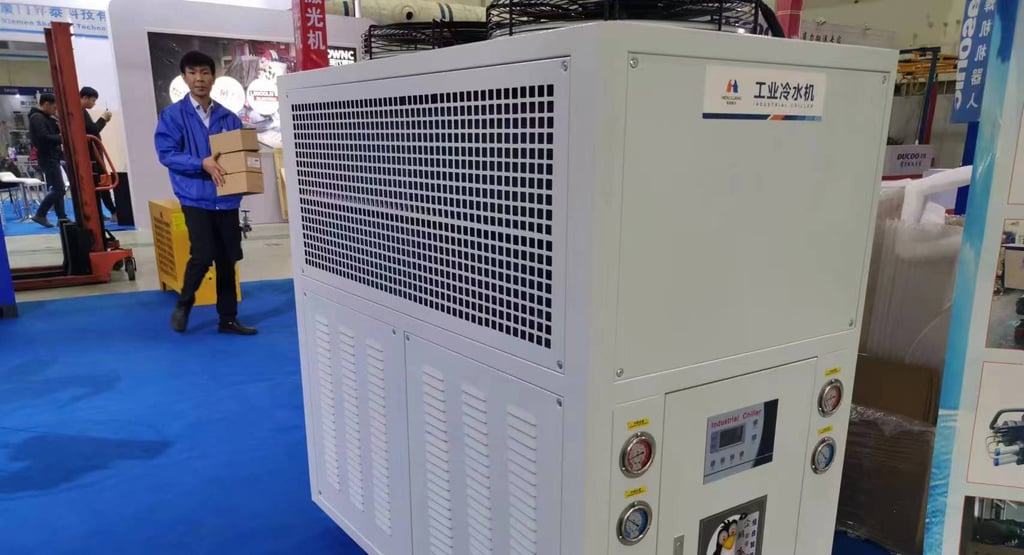The Importance and Benefits of Industrial Chillers in Modern Industries
Industrial chillers are refrigeration equipment dedicated to the industrial field, used to provide coolant for equipment and systems in industrial production to maintain normal operating temperature. Industrial chillers can reduce the operating temperature of equipment and improve the efficiency and life of equipment by absorbing and discharging the surrounding heat. Industrial chillers usually adopt the principle of compressor refrigeration, including air cooling and water cooling, with the characteristics of rapid cooling, good stability and long service life. Industrial chillers are widely used in various industrial production scenarios such as injection molding machines, chemical equipment, printing equipment, laser equipment, etc. If you need to buy an industrial chiller or want to know more information, please feel free to ask us for a quote. We will provide professional services and product recommendations to provide you with high-quality industrial chillers to meet your cooling needs. Thank you!
INDUSTRY CHILLER
Alan
6/1/20242 分钟阅读


In today's industrial landscape, the role of efficient cooling systems cannot be overstated. An industrial chiller is a device engineered to cool water to the desired temperature through the compression refrigeration cycle principle. This sophisticated system mainly comprises a compressor, condenser, expansion valve, and evaporator. By providing stable cooling water, industrial chillers play a crucial role across various sectors, including plastic processing, electronics, chemical, pharmaceutical, and food processing industries.
Components of an Industrial Chiller
The primary components of an industrial chiller include the compressor, condenser, expansion valve, and evaporator. The compressor is responsible for compressing the refrigerant and increasing its pressure. The condenser then cools the refrigerant, changing it from a gas to a liquid state. The expansion valve reduces the pressure of the refrigerant, which then flows into the evaporator. In the evaporator, the refrigerant absorbs heat from the water, cooling it to the required temperature. This cycle repeats, ensuring a continuous supply of cooling water.
Applications of Industrial Chillers
Industrial chillers are highly versatile and are utilized in a wide range of applications. In the plastic processing industry, they help maintain the optimal temperature of equipment and materials, preventing overheating and ensuring product quality. In the electronics sector, chillers are used to cool down electronic components, thereby enhancing their performance and longevity. The chemical and pharmaceutical industries rely on chillers to maintain precise temperature conditions essential for various chemical reactions and storage requirements. Additionally, the food processing industry uses chillers to ensure food safety and quality by maintaining appropriate temperatures during production and storage.
Benefits of Using Industrial Chillers
One of the key advantages of industrial chillers is their energy-saving capability. These devices are designed to be highly efficient, consuming less energy compared to traditional cooling methods. This not only reduces operational costs but also has a positive impact on the environment. Industrial chillers are known for their high efficiency, ensuring consistent cooling performance even under varying load conditions. Furthermore, they offer good stability, which is crucial for maintaining the reliability of industrial processes. The ability of industrial chillers to meet the specific cooling requirements of different industrial occasions makes them indispensable in modern manufacturing and processing environments.
In conclusion, the industrial chiller is a pivotal component in various industries, providing reliable and efficient cooling solutions. Its energy-saving characteristics, high efficiency, and good stability make it an essential asset for any industrial operation requiring precise temperature control. As industries continue to evolve, the demand for advanced cooling systems like industrial chillers will undoubtedly increase, underscoring their importance in the modern industrial landscape.
